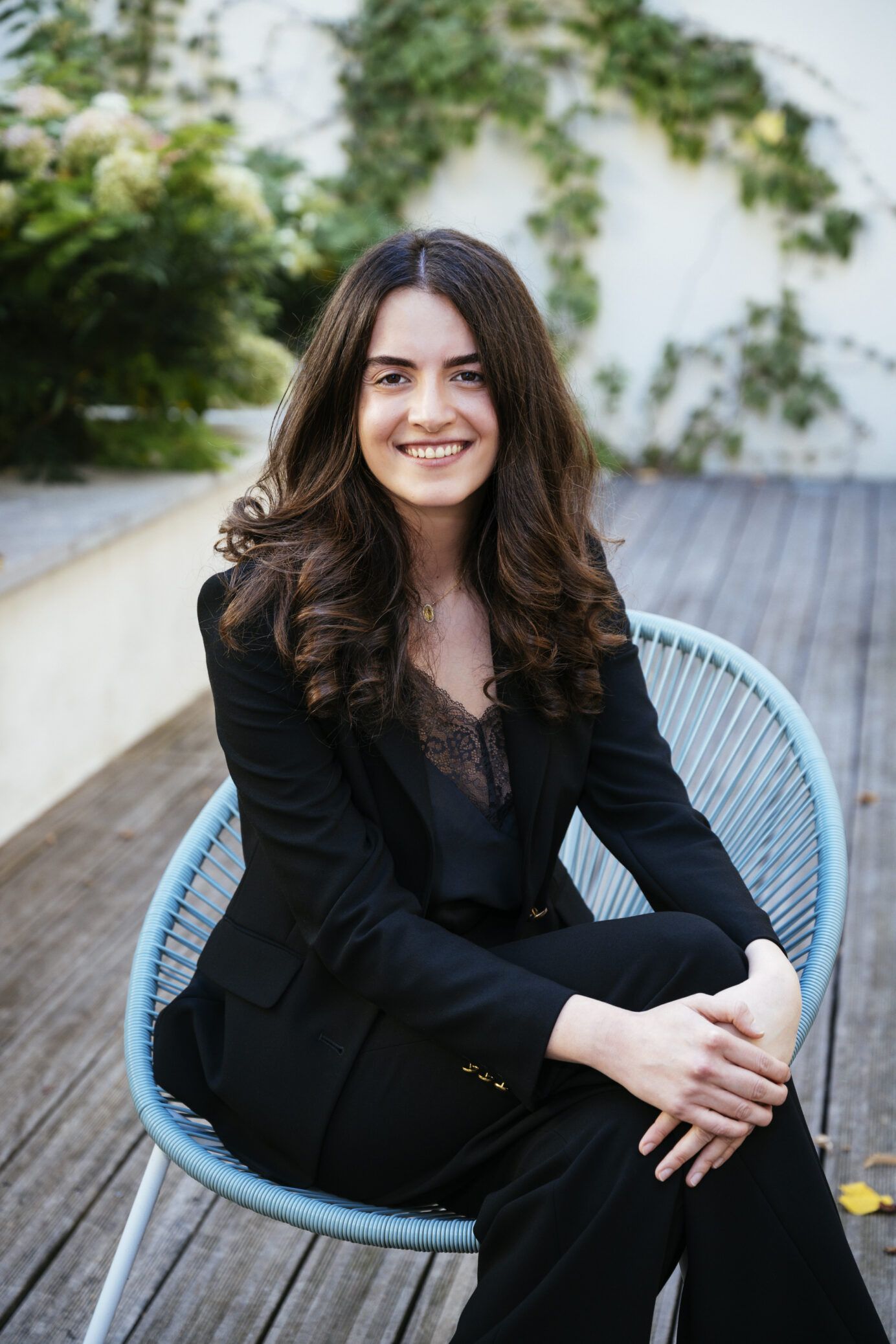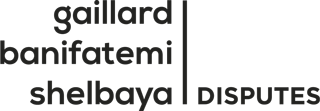Tatiana Lebbos, Associate at Gaillard Banifatemi Shelbaya Disputes
How did you get into law?
I guess that my path into law was shaped by two factors. First, I’ve always loved reading and research even from a young age. I used to prepare presentations on topics like history, environment, and geography, and my mother, whose patience was remarkable, was my audience.
The second, and most significant, influence was my father, who is a lawyer. I’ve always looked up to him, and he inspired me to pursue a legal career. He taught me the importance of making strong legal arguments and presenting them effectively in court. My father however specializes in criminal law, international arbitration was my own discovery.
How did you discover arbitration then?
I pursued my legal education at “Université Saint Joseph de Beyrouth” in Lebanon. Even though our university did not have specific courses on arbitration, a group of students would participate every year, coached by alumni, in the Willem C. Vis International Commercial Arbitration Moot. I participated during my fourth year of law school in the 26th edition of the Willem C. Vis International Commercial Arbitration Moot. The competition aims to provide practical training to students for resolving international business disputes based on real life events. It’s a simulation of real-life arbitral proceedings, the students would submit two rounds of legal memoranda and present their arguments in oral hearings held before arbitration practitioners and academics. The three issues we had to address were (1) the determination of the applicable law to the arbitration agreement, (2) the admissibility of illegally obtained evidence, and (3) whether the conditions of the hardship clause in the agreement were met. I had the chance to present the arguments for the first two issues at the competition and received the Honorable Mention “Martin Domke for Best Individual Oralist”. I remember how both fascinating and challenging it was for a fourth-year law student to plead legal and factual arguments before academics and arbitration practitioners. I loved the exercise of framing legal arguments, conducting legal research, juggling with the facts, building a storyline for the case and presenting them as effectively as possible before the tribunal. I learned a lot about arbitration that year, and it convinced me that this would be my career path.
You were born and raised in Lebanon and you chose Paris to pursue your law studies. Why?
I have always had a connection to France and the French language. I began my education in a French-speaking school in Lebanon “Collège des Frères Mariste Champville”. I then pursued my legal studies at “Université Saint Joseph de Beyrouth”, where I learned both Lebanese and French law. Lebanese law is heavily influenced by French law, which was an additional reason for me to come to Paris to pursue my law studies. I made the move to Paris in 2019 to pursue a Master’s degree in business law at Panthéon-Assas University. Then, in 2020, I continued my studies with a Master’s degree in arbitration and international commercial law at Panthéon-Sorbonne University.
My decision to study business law first, and then move on to international arbitration, was influenced by the realization that international arbitration is a dispute resolution mechanism that can apply to a wide range of subjects. For example, in an investment arbitration arising out of the alleged non-performance of a gas sale agreement between the investor and the State, you would touch upon matters of international law, but also contract interpretation. In an international commercial arbitration arising out of a share purchase agreement, you would definitely touch upon matters of business law. The decision of pursuing a Master’s degree in business law before moving on to international arbitration was encouraged by Professor Gaillard.
How did you get to know him?
Everyone knew him! I frequently turned to the Fouchard, Gaillard, Goldman on International Arbitration for my legal research preparing for the Vis Moot and read many articles he had authored. I got to meet him personally during the Private international law session of The Hague Academy in 2019. Yas Banifatemi was giving a course on the powers of the arbitrators that year and Professor Gaillard was present. I briefly discussed with him my plan to pursue two Master’s degrees and he validated my choice, saying it was a good starting point. Then I asked that a picture be taken with me standing beside him, and he kindly said “yes of course!”. I’m glad I asked for that picture!
How did your recruitment go?
I had heard so much about the team and their reputation inspired me to pursue an internship opportunity. My initial encounter with a senior associate, Pierre Viguier, took place at the job fair of Panthéon-Assas in 2020. I introduced myself, and we engaged in a conversation about my experience at the Vis Moot. I recall him writing on my CV “à contacter”; I was so happy! I followed up with him two weeks later, which eventually led to my interviews. The four interviews were through videocall as it was in 2020 during the lockdown. The interviews went well, and I was eventually told that I could start in February 2021. I interned at our firm for a year, and I have been an associate for a year and a half now, summing up a total of two and a half years at Gaillard Banifatemi Shelbaya Disputes.
Tell us about your first day…
I had started at Shearman & Sterling on the 1st of February 2021, I was working from home at that time since we had limited access to the office due to COVID-19. I remember that I was doing my IT training when I got an outlook email notification at the bottom of my computer screen from Shearman & Sterling’s New York office saying “Emmanuel Gaillard, Yas Banifatemi, Mohamed Shelbaya and other partners will be departing to form their own International Arbitration Firm”. At that time, I thought that I was cursed! I had worked so hard to get that internship so as to work with this team, and now they were leaving! For about two weeks, the other trainees and I had no idea about how things would unfold for us. Then one day, we all had a call from Yas Banifatemi who extended an invitation to join Gaillard Banifatemi Shelbaya Disputes to those who were interested. I, of course, chose to be part of the journey, and that’s how it all started!
Tell me why was it so obvious to you to join the firm?
I had applied to Shearman & Sterling initially with the aim of working with Emmanuel Gaillard, Yas Banifatemi, Mohamed Shelbaya and their team, so the natural choice was to follow them when they decided to launch their new firm. It was exciting to be part of this new adventure. I was among the first group of trainees at Gaillard Banifatemi Shelbaya Disputes, we had a Whatsapp group called “Founding Trainees” (in reference to the “Founding Partners”) [laughters].
What kind of work atmosphere have you found?
I’m very fortunate to be part of this team as they are exceptionally pleasant to work with. We manage to have a lot of fun even during the late evenings preparing submissions or hearings. Most importantly, I find that what truly sets this team apart is its unwavering commitment to work ethics – it’s all about excellence and creativity. We leave no stone unturned.
Can you tell us more about this creativity.
We have a creative approach to our cases and we’re not afraid to make complex arguments, which is what I find most enjoyable. Creativity and perfectionism are very important in our field, because the deeper we delve into research and preparation, the more interesting a case becomes. A client approaches us with his own version of the story and some documents, and it’s up to us to shape how we present them. Without creativity and thorough examination of every aspect of the case, achieving that level of argumentative “perfection” would be impossible.
Can you give an example?
The perfect example I could give is a legal construction argument I worked on with Mohamed Shelbaya earlier this year on an investment arbitration case. We had to interpret a dispute resolution clause in a bilateral investment treaty to determine whether the State had consented to arbitration. You might think interpreting a ten-line provision should be straightforward, but it’s far from being that simple. The more one reads the clause closely, the more one discovers the different layers of the mechanism that it describes. While the interpretation of the clause was a minor point for opposing counsel, we were the ones who brought the tribunal’s attention to the complexity of the provision. So much so that on the final day of the hearing, the tribunal expressed interest in hearing more about the construction of the provision during our closing statements. The interpretation of a ten-line provision ended up taking an hour and a half of our closing statement! This shows you the importance of creativity.
What is next for you?
I’d love to foster my legal creativity as far as possible. My goal is to reach a level where I would have the instinct to come up with creative and well-structured arguments on my own.
Interview by Valentine Faure, journalist

